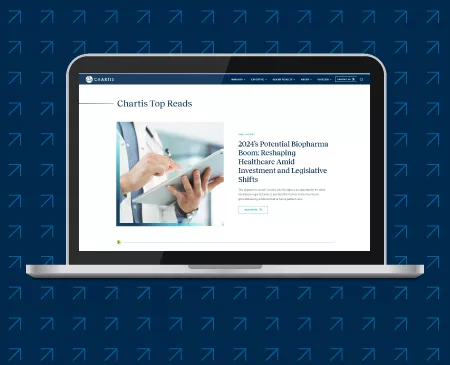The Buzz This Week
Last month, the Biden Administration announced an initiative to develop new federal regulations surrounding medical debt on credit cards. These new initiatives will remove medical bills from credit reports, prevent creditors from using medical bills when deciding on loans, and stop debt collectors from using credit ratings to pressure people with medical debt. It is expected that these rules will be developed in the next year. The Consumer Financial Protection Bureau (CFPB) said the proposal would help to “stop debt collectors from coercing people into paying bills they may not even owe, and ensure that creditors are not relying on data that is often plagued with inaccuracies and mistakes.”
Medical debt, addressed in a previous edition of Top Reads, is not a new problem. It burdens approximately 100 million Americans and, according to a 2022 Kaiser Family Foundation poll, has forced 1 in 5 people to change their lives. Medical debt is the most common collection type found on credit reports, making up about half of all outstanding consumer debt in the United States. It’s estimated that about 6% of adults owe more than $1,000 in medical debt, and 1% owe more than $10,000. People with disabilities and Black Americans are more likely to have significant medical debt.
Other efforts have been made to address the medical debt crisis. Last year, Equifax, Experian, and TransUnion agreed to exclude any medical collections debts that have been paid, as well as those less than a year old, from credit reports. As of April 11, 2022, the bureaus no longer include medical collections for amounts under $500 on credit reports. At the state level, Colorado and New York have already taken steps to scrub medical debt from credit records. Colorado's law took effect in August, and New York’s law awaits governor signature. This most recent initiative from the Biden Administration would be one of the most significant federal actions to tackle the debt problem, improving the credit score of millions of Americans.
Why It Matters
For patients, bad credit has devastating impacts on financial health with trickle down effects into all other areas of life. Despite the fact that medical debt has not been found to accurately predict a consumer’s creditworthiness, there is evidence that credit scores depressed by medical debt can threaten people’s access to housing and fuel homelessness in many communities. Residents in homeless encampments frequently have medical debt, and those with debt tend to experience homelessness 2 years longer than encampment residents without it.
Additional research shows stable housing is critical to physical and mental well-being, and medical debt can undermine housing security is several ways: by making it difficult to get a lease or mortgage due to depressed medical scores, inability to make rent or home payments while trying to manage debt payments and preserve healthcare access, or unexpected/accidental illness that may force patients to stop working (which compounds their financial struggles and jeopardizes their insurance coverage or ability to pay for housing), to name a few.
Some medical systems have begun investing in affordable housing in their communities to address housing security, a social driver of health. People with unstable housing are more frequent users of the Emergency Department, creating a cyclical effect of medical debt, housing insecurity, and hospitals with unpaid bills. These systems “aim to improve the health of their most vulnerable patients by addressing one of the root causes of poor health: homelessness.”
The medical debt crisis has been snowballing for years as health systems converge and inflation continues to rise. It can cause patients to accrue credit card debt, go bankrupt, delay lifesaving medical treatment or forgo care altogether, and creates distrust of the healthcare system. These new initiatives would not eliminate medical debt or resolve the medical debt problem, but they will remove it from credit reports to protect patients from the negative effects of bad credit.
RELATED LINKS
Axios: Medical Debt Is Squeezing Millions of Middle-Class Americans, Report Says
KFF Health News: Biden Administration to Ban Medical Debt From Americans’ Credit Scores
KFF Health News: A Father Dreamed of a Home for His Family. Medical Debt Nearly Pushed Them Onto the Streets
The New York Times: Consumer Agency Moves to Ban Medical Debt From Credit Reports
Editorial advisor: Roger Ray, MD, Chief Physician Executive.







